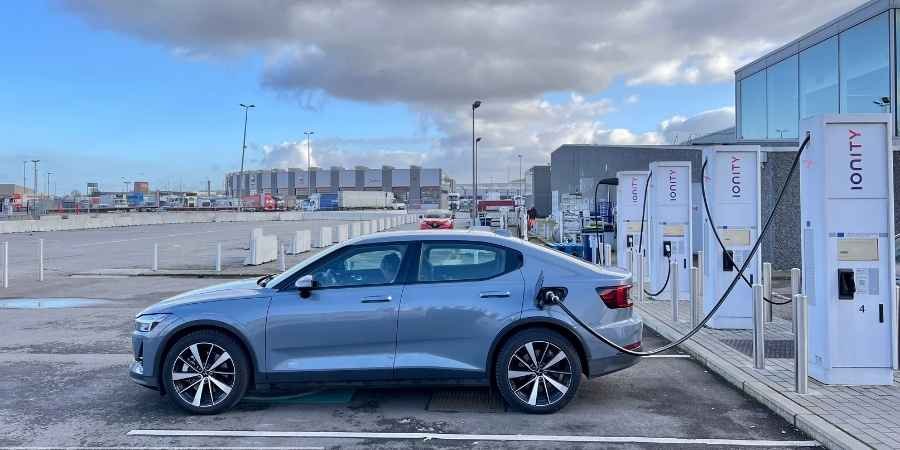Fuel economy is emerging as one of the leading considerations among people choosing a vehicle. Because of rising fuel prices, and rising concern for the environment, it is also very clear to see more drivers looking towards a vehicle that offers good Fuel Efficient Cars, some level of performance, comfort and safety. A recent report indicated that drivers in India claim they spend over INR 12,000 on fuel alone for a mid-sized vehicle each year, and this will only increase as fuel costs change and fluctuate.
For consumers, choosing the right vehicle with good Fuel Efficient Cars can save a lot of money throughout a vehicle’s average use-life, while also being more environmentally friendly as well. In 2025, many vehicles emerge that will be highlighted for the good fuel economy, ecosmart features, and features and amenities suitable for everyday commutes and on long and extended drives.
Understanding Fuel Efficiency
Fuel efficiency describes the distance a car can travel on a predetermined amount of fuel, commonly expressed as kilometers (km) traveled per liter (l) (km/l). A car with a higher km/l rating will use less fuel for the same distance, and save money. Fuel Efficient Cars are determined by many factors, including engine design, vehicle weight, aerodynamics, type of transmission, tire selection, etc.
For example, smaller vehicles have an advantageous trade-off between power and slower speeds, but often do not provide the best mileage on highways at higher speeds. Hybrids and some electric vehicles take some of this further because they reduce or eliminate, on-road petrol consumption, effectively providing lower or zero-emission driving options for the environmentally conscious customer.
When making decisions in Fuel Efficient Cars, it is also important to consider the expected real-world performance of the car you’ll be driving. Most manufacturers will display their vehicle performance data using some “ideal” conditions, but often give a good idea of fuel efficiency you can expect from your car.
Traffic patterns, road surfaces, fuel quality, and your driving patterns all impact the amount of fuel you will consume while driving. For example, a car advertised as having 25 km/l of fuel efficiency may provide closer to 18 km/l of fuel efficiency in city use. You can often see long-term owner reports which can confirm vehicle performance, while professional tests will give a better idea of how the vehicle performs over time.
Top Fuel Efficient Cars in 2025
A few best fuel efficient cars 2025 have changed the game for what is considered very low levels of fuel consumption. Lightweight small hatchbacks continue to win over urban markets because they are small cars, have lightweight chassis and small engines.
The Maruti Suzuki Alto has been a long-time favorite for city vehicles with mileage figures around 23 km/l. It is small, has a simple engine, and is a very easy-to-use gearbox, which makes it the perfect car for city environments.
The Tata Tiago is also very good with Fuel Efficient Cars at around 22 km/l, as it has a slightly larger physical disposition and more features like touchscreen infotainment and safety sensors.
If you are looking for sedans, you can’t go wrong but to check out the Honda Amaze with petrol variants returning mileage that is around 24 km/l. The Amaze is great as it performs well and has great Fuel Efficient Cars with very decent cabin space without the engine costing you any comfort, and good quality materials.
Also in the space, the Hyundai Aura has Fuel Efficient Cars that would be around 21–22 km/l, giving customers good comfort and drive quality, with good styling.
Hybrid vehicles left a larger footprint within the automotive industry in 2025 due to efficiency records garnered using a combination of petrol and electric motors.
Take the Toyota Camry Hybrid, for example, which gets up to 28 km/l under mixed driving habits. The Camry is still a good option for those that need to drive long distances and need a combination of Fuel Efficient Cars and driving comfort. In the same pocket-rocket sector, the Honda City e:HEV hybrid variant is also promising a mileage of around 26–27 km/l and still delivering its sporty capabilities.
Electric vehicles (EVs) do not use fuel in the traditional sense; however, they are a relevant part of the discussions and category of Fuel Efficient Cars. Other cars, like the
Tata Nexon EV and MG ZS EV, can deliver distance travelled without using petrol completely. Although the initial purchase price is relatively more expensive, the cost of charging a car, and EV subsidies from both state and federal governments, add to the case for EVs when considering the long-term cost of ownership. Car enthusiasts who still adhere to petrol-motor cars to maximise miles-per-litre may also be interested in considering plug-in hybrids which provide a cross-functional vehicle between manufactured EVs and traditional petrol motor automobile.
Features That Improve Fuel Efficiency
There are many factors that can influence how efficient your car is. Manual transmissions may sometimes be more efficient in city driving, while automatic transmissions may be more convenient at the cost of a little fuel consumption. Features that reduce vehicle weight, such as aluminum and high-strength steel, can also improve your mileage. The shape of your car will also affect mileage; cars with a smooth shape will have less drag, and therefore, less consumption of power to maintain speed.
Tires are also a consideration when thinking about low mileage cars. Low rolling resistance tires, when taken in consideration with safety factors, can improve km/l. Keeping your tires properly inflated can reduce the load on your engine. Proper vehicle servicing, regular oil changes and clean air filters will keep your engine as efficient as possible. Drive smoothly and use gradual acceleration and braking, not a racing style, to attain better fuel consumption.
Cost Benefits and Environmental Impact
Cost advantages are provided through fuel saving cars. When comparing a 25 km/l vehicle to another at 15 km/l, this can add up to thousands of rupees per year of savings for the average commuter. Over the life of a vehicle—that’s quite a bit of money. These economical cars also help limit greenhouse gas emissions. Research indicates that each litre of petrol consumed produces an estimated 2.3 kg of CO2. So, less fuel consumption means less emissions; another reason we can support cleaner air and urban living through sustainability.
Government policy, both in India and worldwide, has been to promote Fuel Efficient Cars. It has included tax incentives, subsidies, and emissions mandates to engine manufacturers and consumers. Cuts to emissions mandates for manufacturers have also created financial incentives for urban areas to implement congestion charges and parking fees based on metrics of Fuel Efficient Cars. Expectations of the environmental and cost benefits should make the choice to purchase a fuel saving car even more appealing.
Choosing the Right Car
It is important to understand that finding the best fuel efficient cars 2025 does not only come down to km/l numbers. You will have important considerations such as the daily driving distance, where you drive (road conditions), family size, and longer term expectations. Small hatchbacks had great km/l in a vehicle that is useful for driving around in city traffic, but may have been too cramped for weekend excursions. Sedans and hybrids will offer comfort and efficiency for your long-distance driving but were much more expensive to purchase at “[checkout].”
While a test driving event, owner reviews, or side-by-side comparisons help you find a vehicle that best fits your demands for performance, comfort and low mileage cars, it is vital to select one that also has strong maintenance and reliability records. What good is a vehicle that gets high mileage and has low fuel costs if you are continually spending for repairs?
No one likes to be unhappy every time you need to go for routine maintenance, so it is best to choose reliable brands with time-tested durability and service networks. It is also useful to think about resale value. Vehicles that offer cars with highest mileage 2025 tend to have higher resale value, because there is consistent demand for economical cars in urban and semi-urban areas.
Future Trends
The automotive market is changing rapidly. Hybrids and electric vehicles are still on the uptick, and petrol and diesel engines are getting more efficient. Fair play to them. New technologies like variable valve timing, direct fuel injection, and weight reduction in the construction of a car are making even regular engines more competitive. In the last few years, digital systems can track the driver’s driving behavior and adapt the performance of the engine or the accelerator to provide more fuel saving cars patterns. For drivers, this will mean more Fuel Efficient Cars driving patterns without losing convenience or enjoyment.
Autonomous driving technology could have an additional effect on Fuel Efficient Cars, as it may reduce sudden take-offs and stops from automated systems enabling cars to operate at optimum fuel usage. Even in a limited way, new gadgets like start-stop engines, regenerative braking in hybrids, and Eco-driving modes are continually contributing to fuel saving cars. The future of Fuel Efficient Cars is an amalgamation of mechanical engineering and digital technology.
Final Thoughts
Choosing a Fuel Efficient Car in 2025 is more than just saving money at the pump. This is a matter of driving thoughtfully, responsibility in personal finance, and support for the environment. A small hatchback, hybrid sedan or electric vehicle, understanding real-world performance, features, and costs are important. Whatever vehicle you choose, there is a cost of ownership. A vehicle with the best low mileage cars in 2025 may save you money in the long run, reduce carbon emissions, and represent a commitment towards sustainable transportation.
At the end of the day, the top fuel efficient cars for city driving is one that fits your lifestyle while being the most efficient. Practicality, comfort, and reliability must mesh with mileage. For daily drivers spending hours behind the wheel, even the smallest gains in affordable fuel efficient cars 2025 will realize savings and contribute to responsible driving, can only improve your vehicle selection and driving experience. The choices that you make today will shape a more economical car and environmentally advantageous future.








